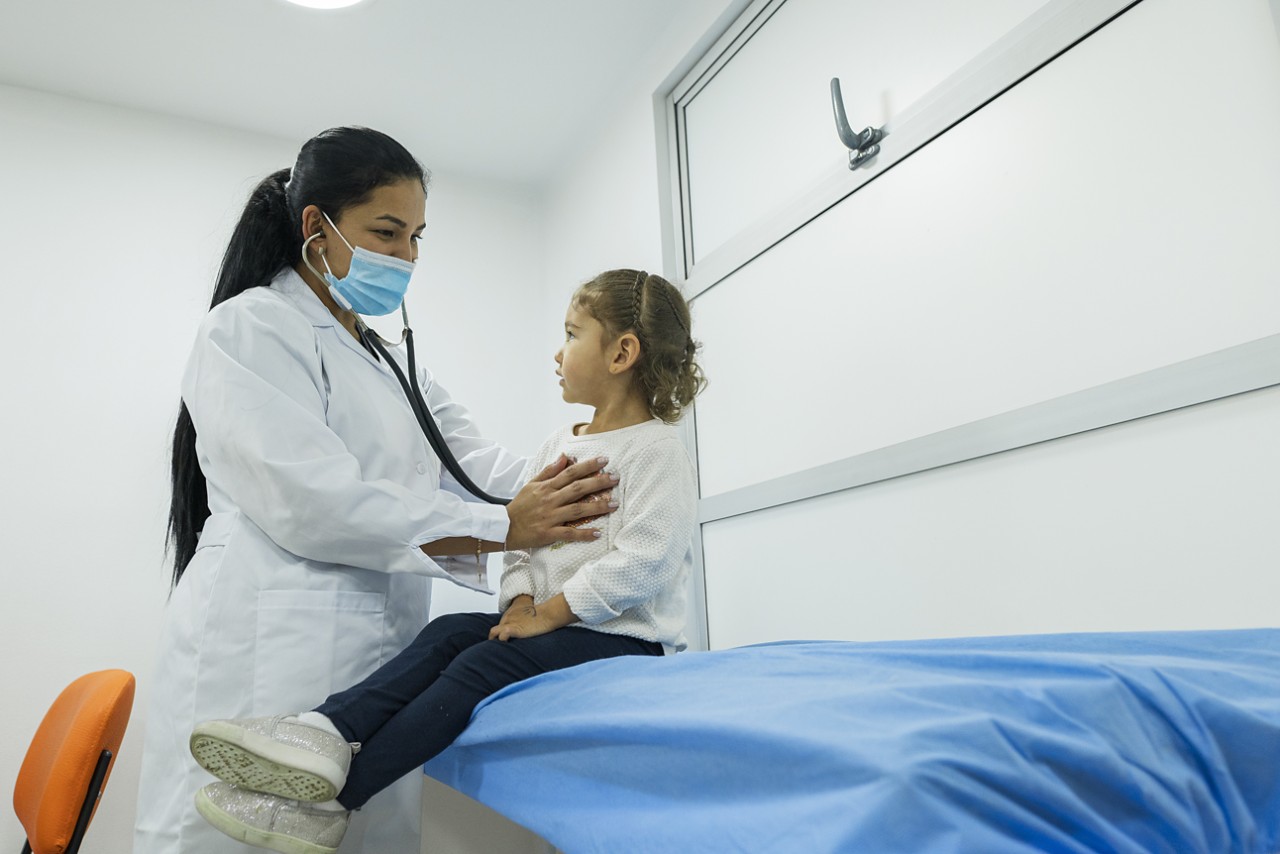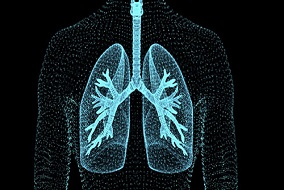3 things to know about RSV
RSV usually hits young children harder than adults
The “tripledemic” — or the convergence of COVID-19, seasonal influenza, and respiratory syncytial virus, or RSV — has been hammering hospitals in the U.S. since fall 2022.
While the flu and COVID-19 are household terms, for many RSV is unfamiliar. But chances are you’ve had it.
 “RSV has been around for a long time and it's incredibly common and highly contagious,” said Dr. Karen Phillips, Chief Medical Officer for Respiratory Interventions at Medtronic.
“RSV has been around for a long time and it's incredibly common and highly contagious,” said Dr. Karen Phillips, Chief Medical Officer for Respiratory Interventions at Medtronic.
The virus generally causes nothing more than cold-like symptoms in healthy adults and kids, but sometimes it can lead to severe infection, particularly in young children.
Here are three things to know about RSV:
1. RSV is common and for healthy adults and children, it presents much like a cold.
According to the U.S. Centers for Disease Control & Prevention, RSV was discovered in 1956 and has since been recognized as one of the most common causes of childhood illness, causing outbreaks among all ages each year.
The virus generally starts to make its rounds in the fall, peaking in winter. This season, RSV peaked early in October and November 2022, along with influenza and COVID-19, backing up hospitals across the U.S.
In particular, the impressive spike in RSV cases in the U.S. meant that everyone was getting sick, all at once, according to Phillips.
Most children contract RSV before age 2; it’s part of the usual sniffles that kids always seem to get during the fall and winter season, Phillips said. Most healthy children who get RSV will deal with symptoms like sneezing, coughing, and a fever, but they’ll recover automatically, Phillips said.
“The reason it is most prevalent in children is that obviously when they have that first infection, they have no immunity,” Phillips said. “And so when they get (RSV) initially, they get it badly.”
2. Young children are most susceptible to severe cases of RSV.
The manner by which RSV is spread — through droplets and through surface contamination — coupled with kids not covering their mouths when they sneeze and cough makes places like schools and daycares hotbeds for the virus.
“RSV can spread quite quickly through a class and take out a number of kids all at once,” said Dr. John de Csepel, Global Regions Chief Medical Officer and Vice President of Clinical Research and Medical Science at Medtronic.
RSV presents much like the common cold, de Csepel said. And for most adults who are not immunocompromised, it’s nothing more than just that. But for premature babies and young infants, it can become much more severe, even fatal, he said.
“It's particularly because children have such tiny airways that just a little bit of inflammation can cause those airways to obstruct and put a child into distress,” de Csepel said.
For most people, their trachea — or the airway that carries oxygen to the lungs — is the size of their thumb, Phillips said.
“If you look at a 2-year-old, it's a very narrow thumb,” Phillips said. Even a little bit of mucus can have a big impact on a tiny airway.
3. There’s no vaccine for RSV yet, but there are efforts you can take to protect your family.
Don’t throw away those masks used during the pandemic quite yet, Phillips said. They’re still an effective tool for preventing the spread of COVID-19, the flu, and RSV. If you’re going to be in a closed, confined space with other people, don’t be shy to mask up.
Basic hygiene goes a long way, too.
“It took a pandemic to teach adults to wash their hands,” Phillips said. “So with kids, definitely encourage handwashing and just remind them to be vigilant that if they start feeling sick, they start sneezing or coughing.”
Lastly, keep an eye on your kids, Phillips said. Notice if they stop drinking or eating or not using the bathroom as regularly. Watch out for signs of severe symptoms, such as bluing of the lips, wheezing, an exacerbated cough or signs that your child is struggling to breathe.
“Those are red flags,” Phillips said of the symptoms. “Don’t hesitate to scoop baby up and go straight to the ER.”
L001-01252023
Related content



